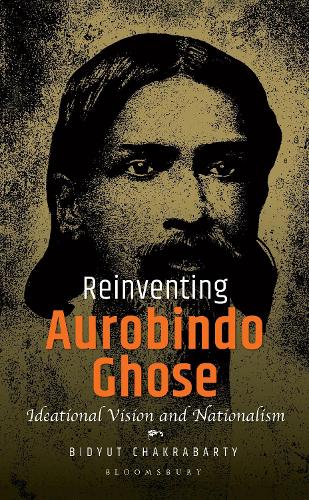
Reinventing Aurobindo Ghose: Ideational Vision and Nationalism
(Hardback)
Publishing Details
Reinventing Aurobindo Ghose: Ideational Vision and Nationalism
By (Author) Bidyut Chakrabarty
Bloomsbury India
Bloomsbury Academic India
30th December 2025
India
Classifications
Professional and Scholarly
Non Fiction
Colonialism and imperialism
Political leaders and leadership
Physical Properties
Hardback
272
Width 135mm, Height 216mm
Description
Aurobindo Ghose's ideological vision challenges traditional interpretations that divide his thought into distinct political and spiritual phases. The common belief that his engagement in the nationalist movement (18931910) gave way to a retreat into spirituality in Pondicherry oversimplifies the complexity of his intellectual evolution. This division, often found in historiography, suggests a shift from nationalism to spirituality but fails to recognise the underlying continuity in Aurobindos ideas. A closer examination reveals a seamless development that transcends such a simplistic bifurcation.
Aurobindos nationalism was not solely political; it was deeply connected to his reverence for Indias ancient intellectual traditions. He opposed the Westernisation of India, seeing it as a force that disconnected Indians from their cultural heritage. The blind imitation of Western values, in his view, betrayed Indias spiritual and philosophical legacy. This commitment to intellectual revival was evident throughout his early career, during which he sought to navigate the colonial system, even attempting to secure a position within the British administration.
Ultimately, Aurobindo rejected this path and aligned himself with the nationalist movement. Alongside leaders like Lal, Bal, and Pal, he redefined Indian nationalism, advocating for direct resistance to colonial rule and championing mass mobilisation that included all castes, religions, and genders. His vision was not a transition from politics to spirituality, but an integrated approach, where nationalism and spirituality were inextricably linked in the pursuit of Indias freedom and cultural renaissance.
Author Bio
Professor Bidyut Chakrabarty served Visva-Bharati as its Vice Chancellor from 2018 till 2023. He was formerly associated with the Department of Political Science, University of Delhi, Delhi, India.
